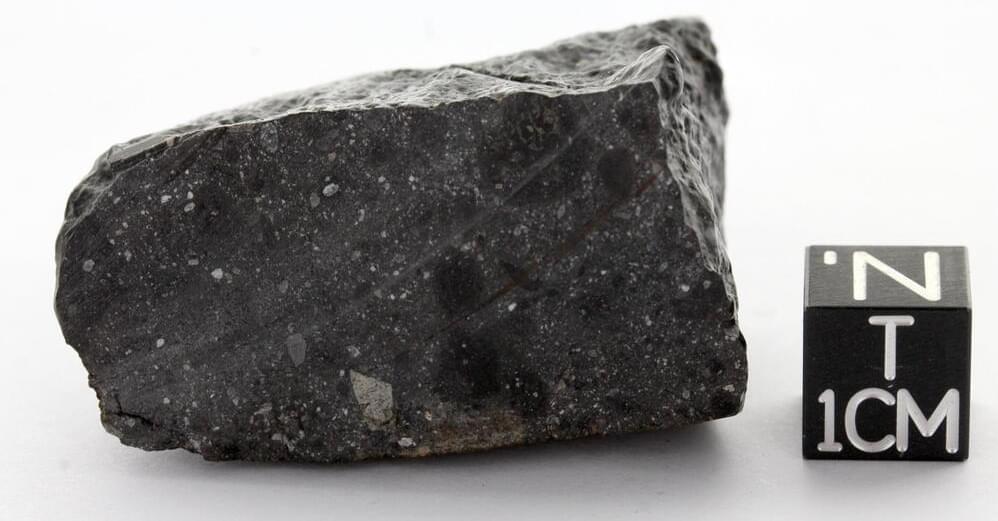A team of researchers at the University of Copenhagen’s Center for Star and Planet Formation, working with colleagues from Université de Paris, ETH Zürich and the University of Bern, has found evidence suggesting that most of the water that made up an ancient global ocean on Mars came from carbon-rich chondrite meteorites from the outer solar system. The study is published in Science Advances.
Prior research has suggested that at one time, Mars was either mostly or entirely covered by a watery ocean, and that the water came from gases seeping from below the surface and liquifying as they cooled. In this new effort, the researchers suggest the water more likely came from another source—meteorites traveling from the outer solar system.
The researchers came to this conclusion after studying fragments flung from the surface of Mars after asteroid strikes, which made their way to Earth as meteorites. The researchers studied 31 of them, looking most specifically for chromium isotopic fingerprints. Chromium-54 does not occur naturally on Mars; thus, its presence in crust samples from Mars would indicate that the surface had been struck by material from somewhere else.
